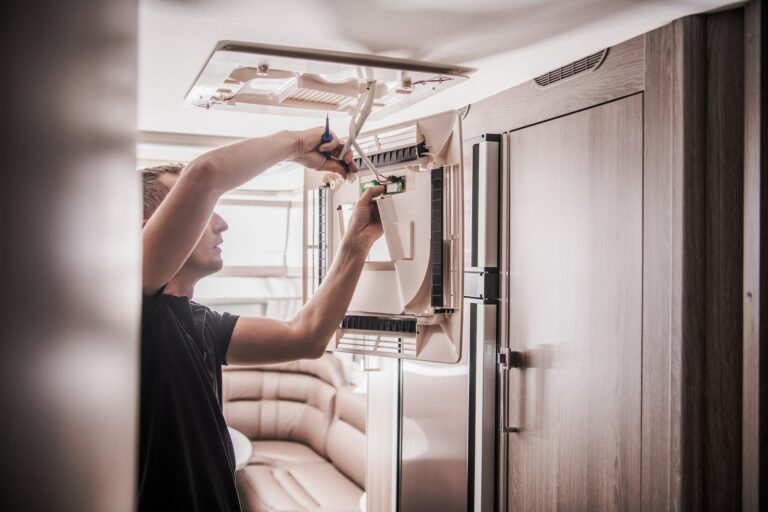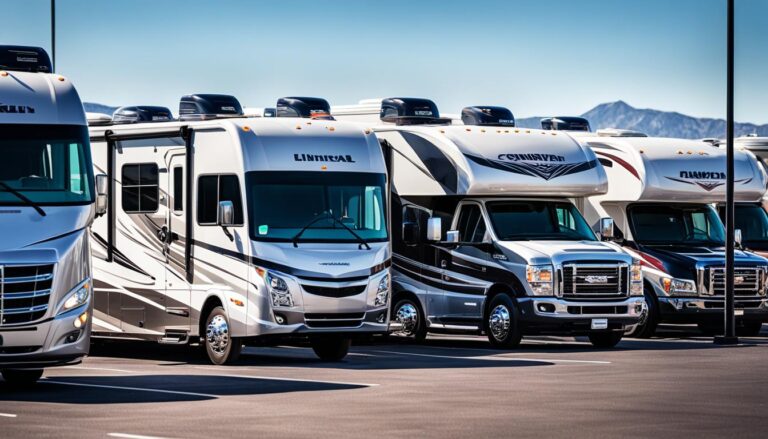One of the most important aspects of comfortable RV living is getting a good night’s sleep. Choosing the perfect RV mattress is crucial in ensuring that you wake up well-rested and ready for the adventures that await you each day. In this comprehensive guide, we’ll explore the factors you need to consider when selecting an RV mattress, as well as the different types of mattresses available, to help you make an informed decision and enjoy restful sleep while on the road.
The Importance of a Quality RV Mattress
A quality RV mattress is essential for several reasons:
- Comfort: A comfortable mattress is crucial in ensuring a good night’s sleep, which is vital for your overall health and well-being.
- Support: A supportive mattress can help prevent aches and pains, which is especially important when you’re spending long hours on the road.
- Durability: A durable, high-quality mattress will last longer and maintain its comfort and support over time, saving you money in the long run.
- Space efficiency: The right mattress can make the most of the limited space in your RV, ensuring that you have room for other essentials.
- Temperature regulation: A mattress that regulates temperature well can help you stay comfortable in a variety of climates, which is important when you’re traveling to different destinations.
With these factors in mind, let’s explore the key considerations when choosing the perfect RV mattress.
Key Considerations for Choosing an RV Mattress
When selecting an RV mattress, there are several factors you need to consider to ensure you make the best choice for your needs:
- Size and dimensions: Measure the space where the mattress will be placed in your RV and ensure you choose a mattress that fits within those dimensions. Keep in mind that RV mattress sizes can differ from standard residential mattress sizes.
- Weight: Consider the weight of the mattress, as it will affect your RV’s overall weight capacity and fuel efficiency. Lighter mattresses may be more suitable for smaller RVs or those with limited weight capacity.
- Firmness and support: Think about your personal firmness preferences and the level of support you require. This will vary depending on factors such as your sleeping position, body weight, and any existing back or joint issues.
- Materials and construction: The materials used in the mattress and its construction will affect its comfort, support, durability, and temperature regulation. Understanding the different types of RV mattresses available will help you make an informed decision.
- Budget: Determine your budget for an RV mattress, but remember that investing in a quality mattress can save you money in the long run by preventing the need for frequent replacements.
Now that you know what factors to consider, let’s explore the different types of RV mattresses available and their pros and cons.
Types of RV Mattresses
There are several types of RV mattresses to choose from, each with its own benefits and drawbacks. Here’s an overview of the most common types:
1. Innerspring Mattresses
Innerspring mattresses are a traditional option that uses coils or springs to provide support. These mattresses are often more affordable, but they can be heavier and less durable than other types.
Pros:
- Affordable
- Familiar feel for those used to traditional mattresses
- Available in a variety of firmness levels
Cons:
- Can be heavy and bulky
- Less durable than other types
- May not provide adequate support for some sleepers
2. Memory Foam Mattresses
Memory foam mattresses are made from viscoelastic foam that contours to your body, providing customized support and pressure relief. These mattresses can be an excellent option for RVers seeking comfort and support.
Pros:
- Conforms to your body for customized support
- Can provide excellent pressure relief
- Available in a variety of firmness levels
Cons:
- Can retain heat, making them less suitable for hot climates
- May be more expensive than innerspring mattresses
- Can be heavy, depending on the density of the foam
3. Latex Mattresses
Latex mattresses are made from natural or synthetic rubber and offer a combination of support and pressure relief. These mattresses are often more durable and environmentally friendly than other types.
Pros:
- Durable and long-lasting
- Can provide a combination of support and pressure relief
- Natural latex options are eco-friendly
Cons:
- Can be expensive, particularly for natural latex options
- May be heavy and difficult to move
- Some sleepers may not like the bouncy feel of latex
4. Gel-Infused Memory Foam Mattresses
Gel-infused memory foam mattresses combine the contouring properties of memory foam with the cooling benefits of gel. These mattresses can be a good option for those seeking the comfort of memory foam without the heat retention.
Pros:
- Offers the contouring support ofmemory foam with added cooling benefits
- Can help regulate temperature for a more comfortable sleep
- Available in a variety of firmness levels
Cons:
- Can be more expensive than traditional memory foam mattresses
- May still retain some heat, depending on the gel formulation
- Can be heavy, depending on the density of the foam
5. Air Mattresses
Air mattresses use air chambers to provide adjustable support and firmness. These mattresses can be an excellent option for those who want the ability to customize their sleeping surface or for couples with different firmness preferences.
Pros:
- Adjustable firmness for customized support
- Lightweight and easy to transport
- Can be more affordable than other types
Cons:
- May not provide as consistent support as other mattress types
- Can be prone to punctures or leaks
- May require a power source for inflation, depending on the model
Tips for Choosing the Perfect RV Mattress
With the various types of RV mattresses and factors to consider, making a decision can be overwhelming. Here are some tips to help you choose the perfect RV mattress:
- Read reviews: Look for reviews from other RVers who have purchased the mattress you’re considering. This can give you valuable insight into the comfort, support, and durability of the mattress in a real-world setting.
- Consider your sleeping preferences: Think about your preferred sleeping position and firmness preferences when selecting a mattress. Side sleepers may benefit from a softer mattress for pressure relief, while back and stomach sleepers may require a firmer mattress for spinal support.
- Test before you buy: If possible, visit a store or showroom where you can test out different mattress types and firmness levels. This can help you get a better idea of what will be most comfortable for you.
- Look for a warranty or trial period: Many mattress manufacturers offer warranties or trial periods, which can provide peace of mind and protection for your investment. Be sure to read the terms and conditions carefully to understand what is covered and any potential limitations.
- Don’t forget about bedding: In addition to the mattress itself, consider investing in quality sheets, pillows, and a mattress protector to ensure a comfortable and hygienic sleeping environment.
Conclusion
Choosing the perfect RV mattress is essential for ensuring a good night’s sleep while on the road. By considering factors such as size, weight, firmness, materials, and budget, and exploring the different types of RV mattresses available, you can make an informed decision that meets your unique needs and preferences.
Remember that investing in a quality mattress can save you money in the long run by preventing the need for frequent replacements, and can significantly enhance your overall RV experience. With the right mattress, you’ll be well-rested and ready to tackle each day’s adventures with enthusiasm and energy.





